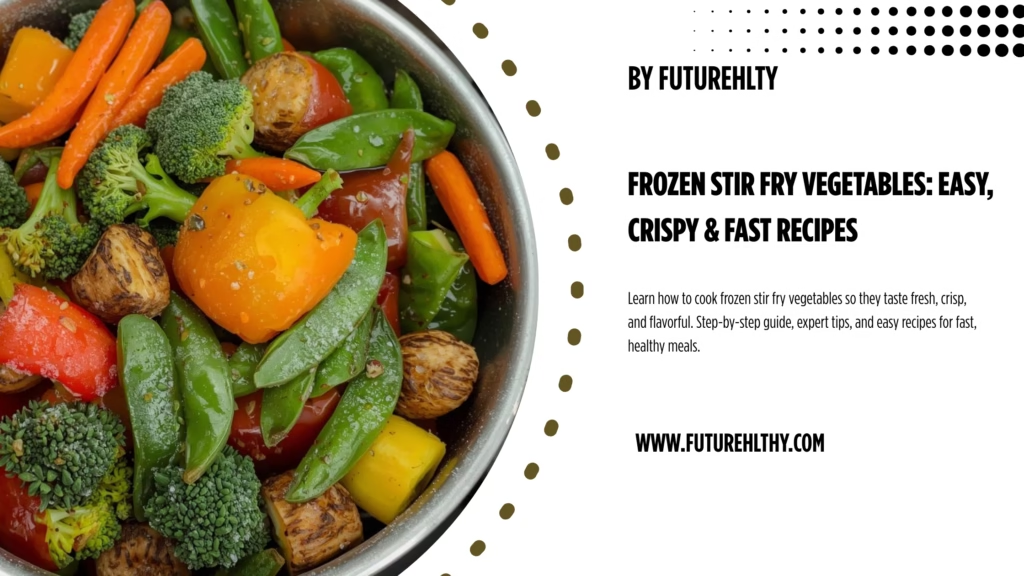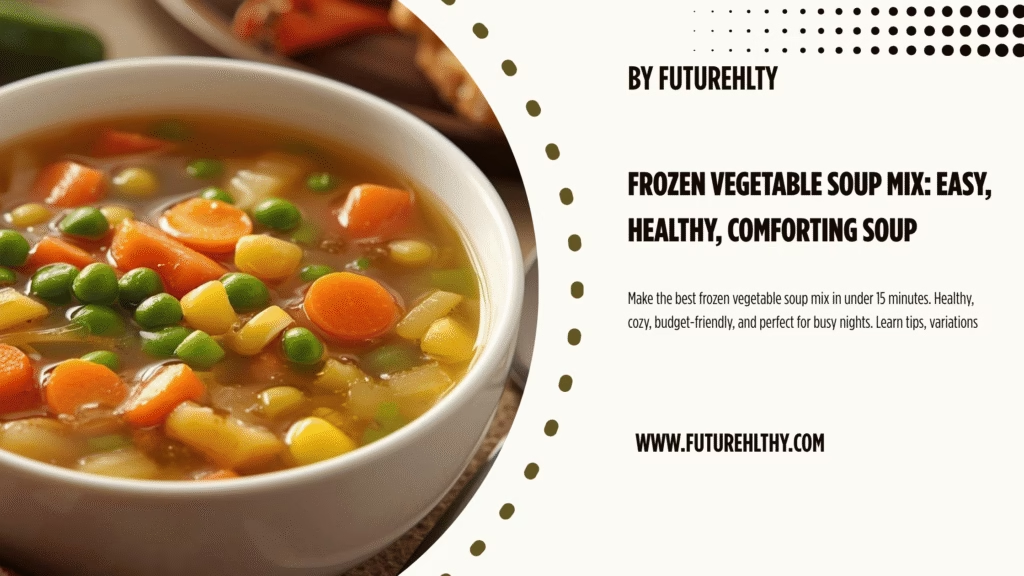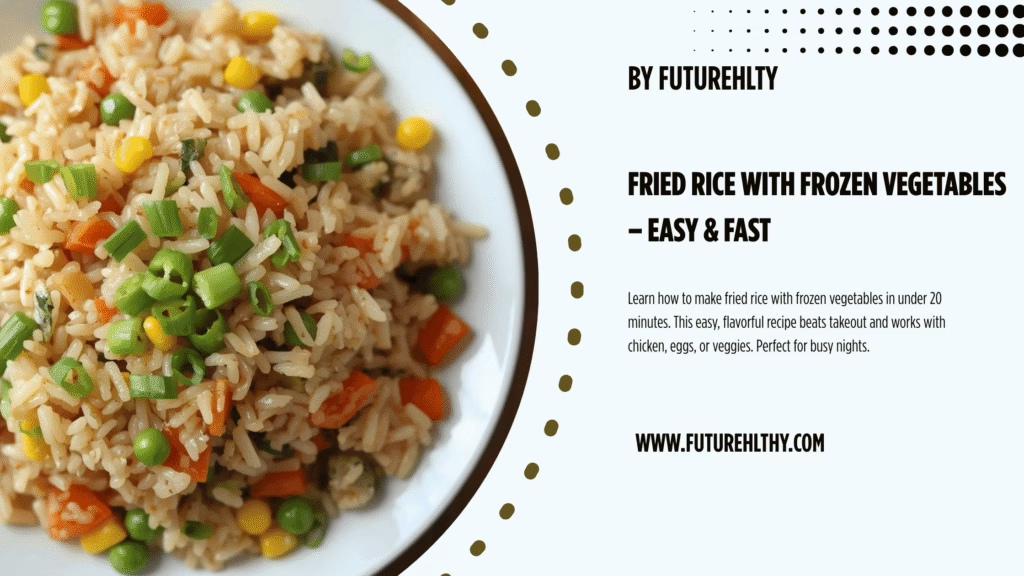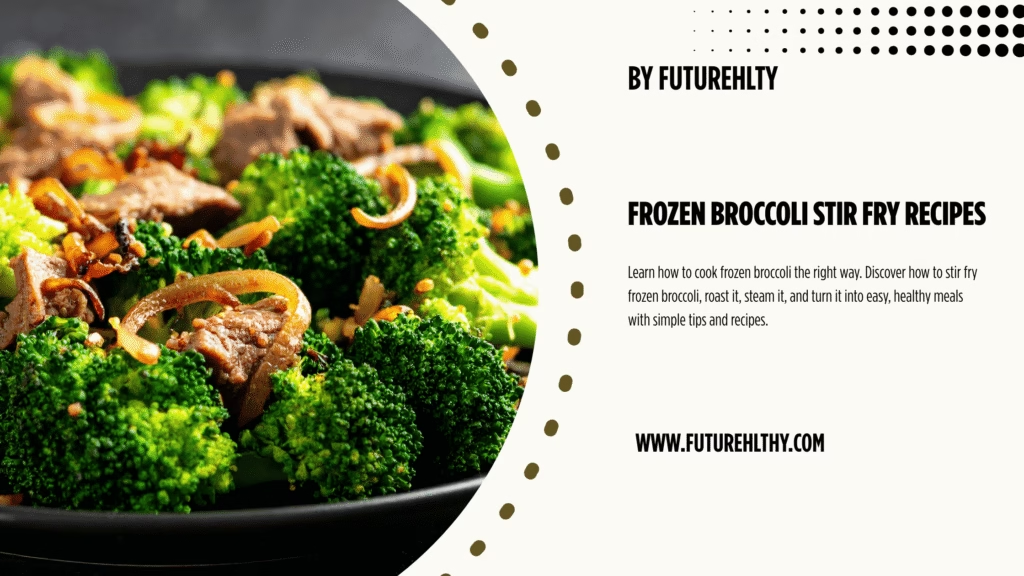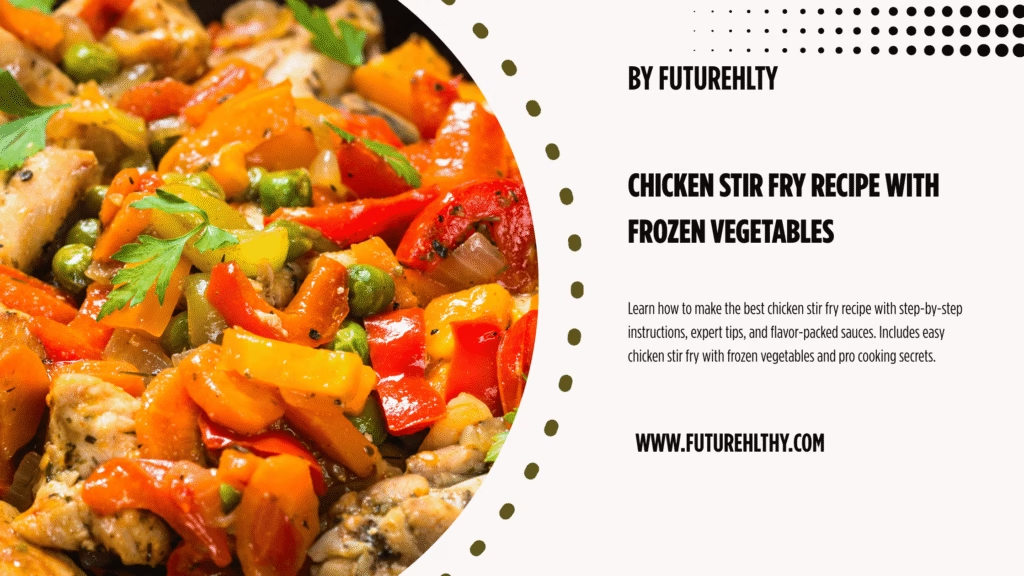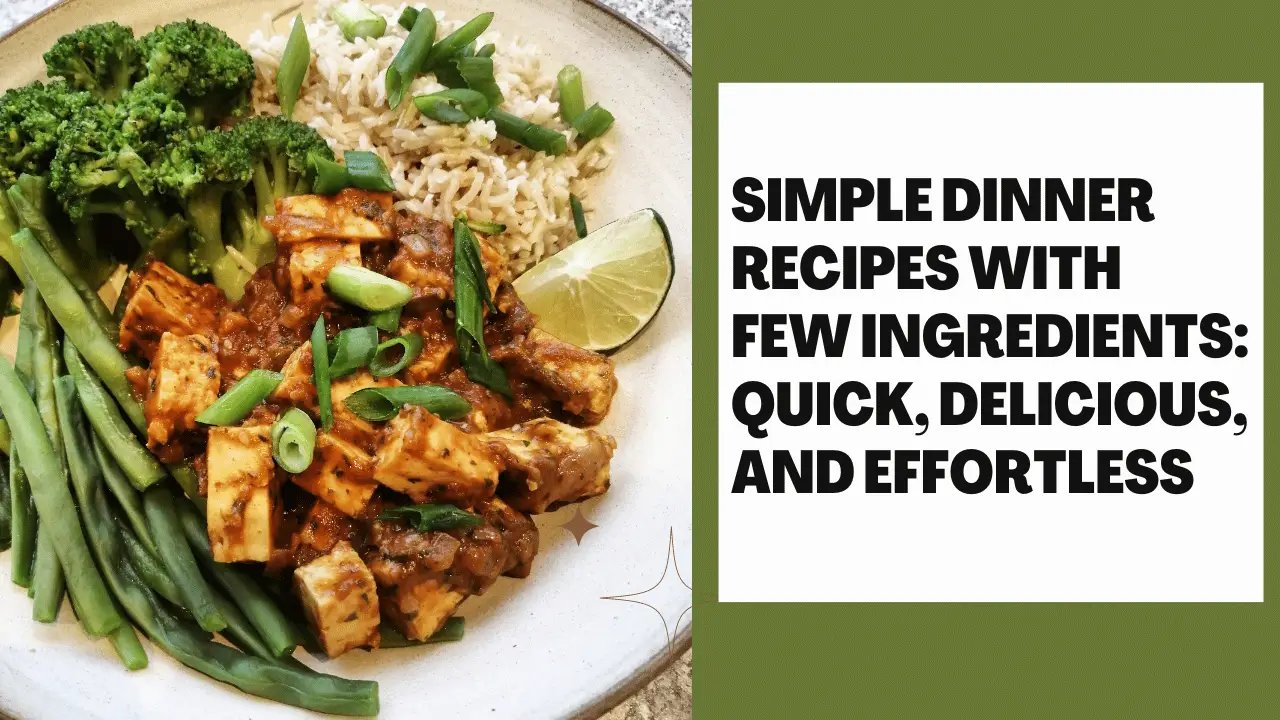Vegetarian Shopping List for Beginners
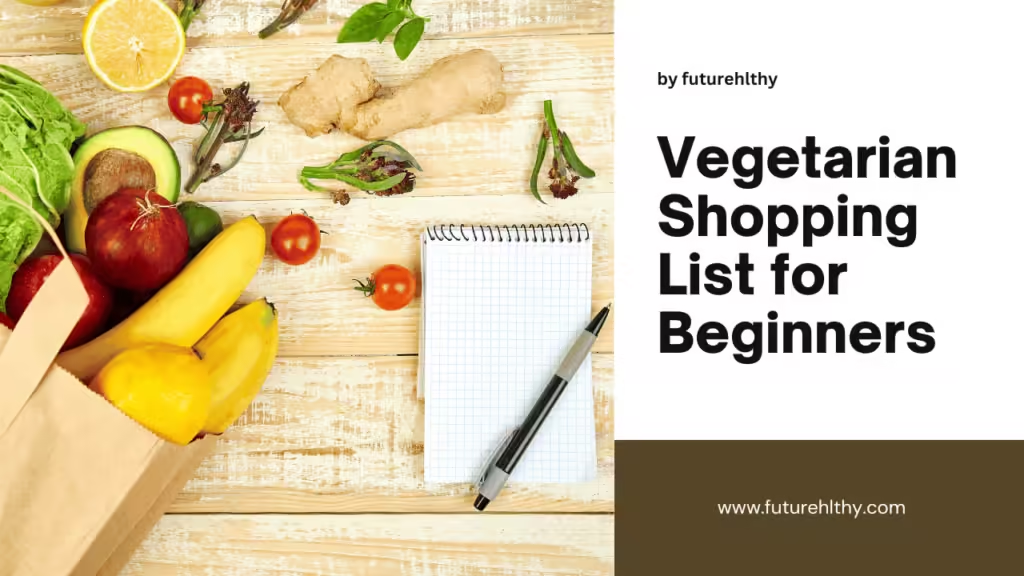
Are you new to a vegetarian diet? A well-planned vegetarian shopping list for beginners makes grocery shopping much easier. This guide will help you find the right foods to stay healthy and enjoy tasty meals.
Whether you’re going fully vegetarian or just adding more plant-based meals to your diet, this article will show you all the basics. Learn about vegetarian proteins, grains, snacks, and pantry staples that are easy to find. Let’s get started!
Why Do Beginners Need a Vegetarian Shopping List?
Switching to a vegetarian lifestyle can be confusing at first. You need to replace meat with other nutritious foods. Having a shopping list for vegetarian beginners ensures you get all the protein, vitamins, and minerals you need.
Benefits of a Vegetarian Grocery List:
- It makes grocery shopping easy and stress-free.
- Helps you stick to healthy foods and avoid junk.
- Ensures balanced meals with enough protein and fiber.
What Should You Add to Your Vegetarian Shopping List?
When building a shopping list, focus on foods that provide all the nutrients your body needs. Below is a breakdown of what to buy to enjoy a healthy vegetarian diet.
Vegetarian Protein Sources for Beginners
Protein is essential, even on a vegetarian diet. Here are some great vegetarian proteins you should add to your shopping list:
- Beans and Lentils – These are packed with protein and fiber. Add them to soups, salads, or curries.
- Tofu and Tempeh – These are perfect replacements for meat. You can use them in stir-fries or sandwiches.
- Quinoa – A grain that’s high in protein and easy to cook. Use it in salads or as a side dish.
- Chickpeas – Make hummus or roast them for a crunchy snack.
- Chia Seeds and Flaxseeds – Add them to smoothies or oatmeal to get extra protein and omega-3s.
Whole Grains and Carbohydrates to Stock Up On
Carbohydrates provide energy and help keep you full. Your vegetarian grocery list should include these healthy grains:
- Oats – Great for breakfast, baking, or making overnight oats.
- Brown Rice – A fiber-rich grain that pairs well with any dish.
- Whole Wheat Bread and Pasta – These provide more nutrients than refined versions.
- Quinoa and Barley – Both are great in salads or soups.
- Tortillas and Flatbreads – Use them to make wraps and sandwiches.
Fresh Fruits and Vegetables for Beginners
Eating a variety of fruits and vegetables helps keep you healthy. These are must-haves for any vegetarian shopping list for beginners:
- Leafy Greens – Spinach, kale, and lettuce are full of vitamins.
- Root Vegetables – Sweet potatoes, carrots, and beets add color and nutrients to meals.
- Berries – Blueberries, strawberries, and raspberries make great snacks.
- Citrus Fruits – Oranges and lemons provide vitamin C to boost your immunity.
- Avocados – They are rich in healthy fats and great for salads or toast.
Dairy and Non-Dairy Alternatives to Buy
If you eat dairy, here are some basics to get. If not, there are many plant-based alternatives you can try.
Common Dairy Products:
- Milk, yogurt, and cheese (like mozzarella or cheddar).
- Butter or ghee for cooking.
Dairy-Free Alternatives:
- Almond Milk and Oat Milk – Use these for smoothies or cereal.
- Plant-Based Yogurts – Made from soy, almond, or coconut milk.
- Nutritional Yeast – Adds a cheesy flavor and provides B vitamins.
Pantry Staples for Easy Vegetarian Meals
Stocking your pantry with these basics helps you prepare meals faster.
- Canned Tomatoes – Use them in soups, stews, or sauces.
- Vegetable Broth – A must-have for soups and risottos.
- Nut Butters – Almond and peanut butter are great for snacks.
- Olive Oil and Coconut Oil – Essential for cooking and baking.
- Herbs and Spices – Keep paprika, cumin, and oregano on hand for seasoning.
Healthy Snacks to Add to Your Vegetarian Shopping List
It’s important to have healthy snacks on hand to avoid junk food cravings.
- Hummus and Veggies – Carrot sticks and cucumber slices are perfect for dipping.
- Rice Cakes or Whole Wheat Crackers – Top them with avocado or peanut butter.
- Trail Mix – Combine nuts, seeds, and dried fruit for a quick snack.
- Dark Chocolate – Satisfy your sweet tooth with antioxidant-rich chocolate.
- Roasted Chickpeas – Crunchy and high in protein.
Budget-Friendly Tips for Vegetarian Grocery Shopping
Eating vegetarian doesn’t have to be expensive. Use these tips to stay on budget:
- Buy in Bulk – Grains, beans, and nuts are cheaper in large quantities.
- Choose Frozen Vegetables – They are affordable and just as healthy as fresh ones.
- Look for Seasonal Produce – In-season fruits and vegetables are cheaper and taste better.
- Plan Your Meals – This reduces waste and saves money.
- Check Sales and Coupons – Take advantage of discounts when shopping.
Weekly Meal Plan Ideas for Beginners
Planning meals helps you use your groceries efficiently. Here’s a simple vegetarian meal plan for beginners:
Breakfast:
- Overnight oats with chia seeds and fruit.
- Avocado toast with whole wheat bread.
Lunch:
- Quinoa salad with black beans and corn.
- Hummus and veggie wrap.
Dinner:
- Stir-fried tofu with brown rice and broccoli.
- Lentil soup with whole wheat bread.
Snacks:
- Trail mix or roasted chickpeas.
- Dark chocolate or fruit with almond butter.
Easy Vegetarian Meal Prep Tips for Beginners
Meal prep can save you time during the week. These ideas are simple and beginner-friendly:
- Make Smoothie Packs – Pre-measure fruit and freeze for quick smoothies.
- Batch Cook Soups – Make a big pot and freeze portions.
- Prep Salads in Jars – Layer ingredients to keep them fresh.
- Chop Veggies Ahead of Time – Store them in the fridge for easy stir-fries.
Final Tips for a Successful Vegetarian Diet
Switching to a vegetarian diet takes time. Follow these tips to make the transition easier:
- Start Slowly – Replace one or two meals with vegetarian options each week.
- Try New Recipes – Keep your meals exciting by exploring new dishes.
- Listen to Your Body – Make adjustments as needed.
- Take Supplements if Needed – Look into B12 or iron supplements if necessary.
- Join a Community – Connect with other vegetarians for support.
Conclusion: Enjoy Shopping with Your Beginner Vegetarian Grocery List
Starting a vegetarian lifestyle doesn’t have to be hard. With this vegetarian shopping list for beginners, you’ll have all the essentials you need to create delicious, balanced meals. Stick to your plan, explore new foods, and enjoy the journey toward a healthier you!
Frozen Stir Fry Vegetables: Easy, Crispy & Fast Recipes
If you’ve ever cooked frozen stir fry vegetables and ended up with a soggy, bland…
Frozen Vegetable Soup Mix: Easy, Healthy, Comforting Soup
If you’ve ever stood in front of your freezer wondering what to cook with those…
The Best Beef Stew with Frozen Vegetables
Nothing feels more comforting than a warm bowl of beef stew with frozen vegetables on…
Fried Rice With Frozen Vegetables – Easy & Fast
Some days, you just want comfort food fast, warm, and satisfying. That’s where fried rice…
Frozen Broccoli Stir Fry Recipes
Frozen broccoli might not sound exciting. But once you learn how to cook it the…
Chicken Stir Fry Recipe With Frozen Vegetables
If you are searching for a fast, healthy, and satisfying dinner, this chicken stir fry…

